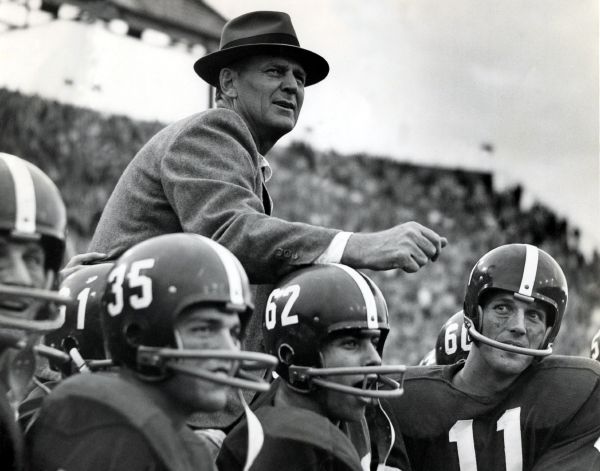There are few more puzzling entities in American life than the NCAA, the governing body of college athletics that is supposed to maintain the “integrity” of sports but instead uses every draconian measure imaginable to keep universities wealthy and players poor. Of course, you don’t want school boosters bribing linemen or shooting guards to attend their alma mater, but the NCAA spends great effort on enforcing the minutia of rules while ignoring the bigger picture: That college sports are a gigantic industry and that the players, who often sacrifice their bodies and brains, should be paid for their work. And, no, a scholarship isn’t fair compensation for those programs that have lucrative contracts for TV, radio and video games.
The opening of a Frontline article about a legal decision that may or may not change this one-sided arrangement:
“In a case that could fundamentally shake the economic model of college athletics, a federal judge on Friday agreed to partially certify a lawsuit challenging restrictions on how student athletes may be compensated in exchange for playing sports.
The ruling by U.S. District Judge Claudia Wilken allows a group of about 20 current and former college players to press ahead with a class action against NCAA rules that prevent athletes from sharing in licensing deals or television revenue. Current guidelines classify players as amateurs, prohibiting them from earning compensation beyond the value of their athletic scholarships.
However, the ruling also came with one major caveat: While Judge Wilken cleared a pathway for players to share in future revenues, she rejected a separate bid that would have allowed them to collect damages for the past use of their images and likenesses both on television and in video games. Had that effort succeeded, the NCAA’s legal tab could have run into the billions.
The split decision left both sides claiming victory.”

